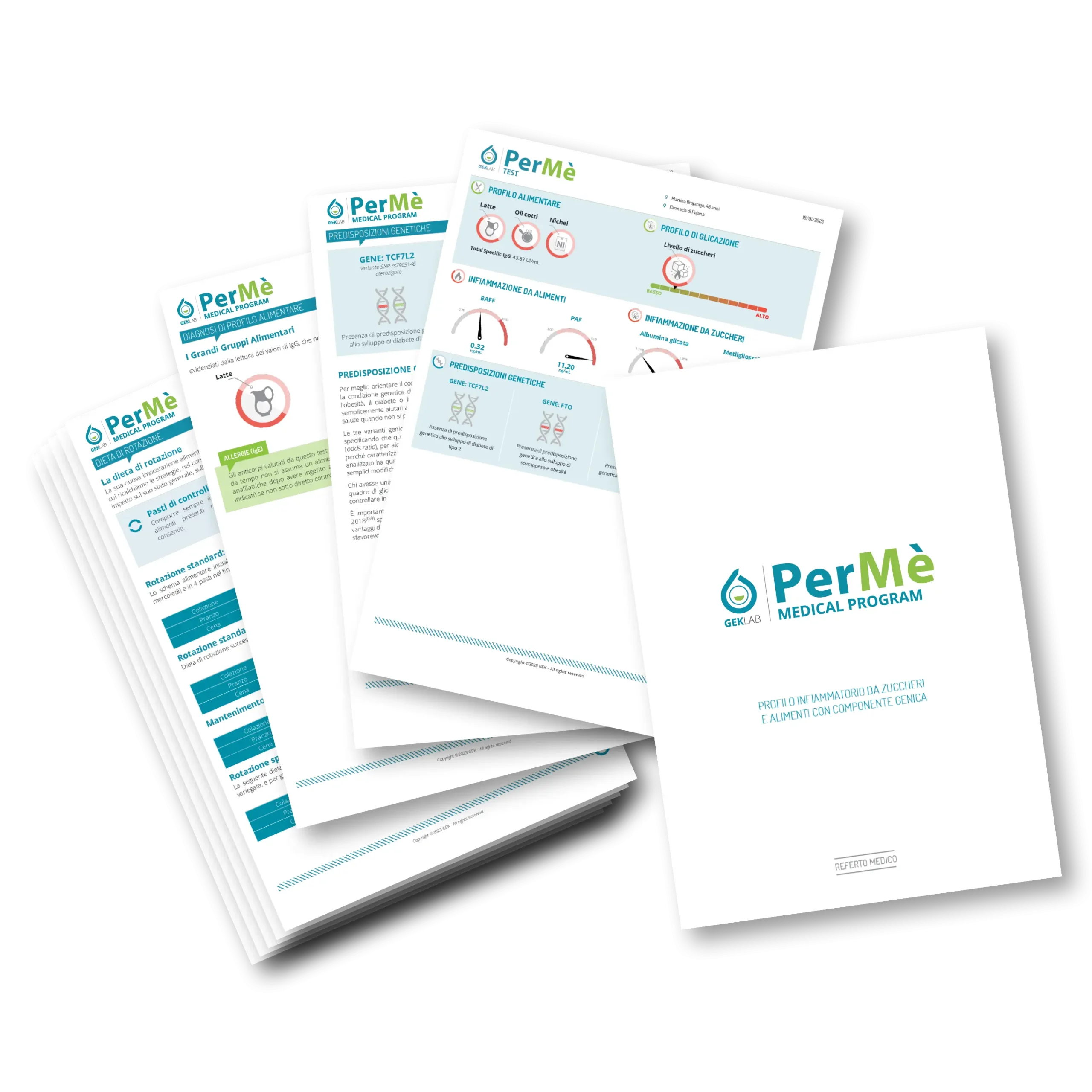Arthritis
Tackle it by reducing inflammatory responses
Diet-related inflammation is one of the main causes of arthritis, and studying inflammatory levels from foods or sugars is the first therapy to use.

- A very common condition that affects joints, tendons, ligaments, and muscle fascia.
- It causes pain and stiffness, swelling, and redness of the joints.
- In the case of rheumatoid arthritis: weakness, fever, and weight loss.
- In the case of psoriatic arthritis: inflammation of skin cells, red patches, scales, and itching.
- Arthritis is a general term that refers to the painful phenomenon in the acute phase and can originate from various diseases.
- Rheumatoid arthritis, psoriatic arthritis, and lupus-associated arthritis are autoimmune diseases.
- Septic arthritis results from an infection.
- Post-traumatic arthritis depends on an injury sustained.
- Some forms of arthritis can also be influenced by genetic predispositions.
Your arthritis may be fueled by inflammation caused by foods and sugars.
Solve it with the PerMé Medical Program.

Simple test, clear results
- Levels of Methylglyoxal, a tissue inflammation biomarker related to sugar consumption
- I Early sugar-induced damage (Glycated Albumin)
- Excessive exposure of the body to specific food classes (IgG)
- Levels of PAF and BAFF, cytokines involved in inflammation
- Alterations in the TNFSF13B gene, which predispose to autoimmune diseases such as rheumatoid arthritis
- Whether you are consuming an excess of sugars and certain classes of foods
- If this excess is responsible for a latent inflammatory state
- How to regulate sugar intake and rotate foods in your weekly diet to improve the symptoms of your arthritis.
- Reduction of symptoms
- Prevention of relapses
- Higher energy levels
- If your diet is too unbalanced toward sugars or carbohydrates
- If there is a latent inflammatory state caused by excessive and repeated consumption of certain foods
- If you are genetically predisposed to autoimmune diseases such as rheumatoid arthritis or certain forms of thyroiditis.







How does it work in practice?
Fill out the form and you will conveniently receive your personal kit at home, with everything you need to perform the test
The kit contains a clear, illustrated guide. The sample collection is simple, quick, and non-invasive: it only takes a few minutes
In the package, you will find a prepaid envelope for free sample pickup. We take care of everything.
In about 7 days, you will receive a complete medical report by email, highlighting the food groups that contribute to inflammation. Along with the report, you will also receive personalized dietary advice to improve your diet and address the symptoms..

Frequently Asked Questions
Yes. The test was developed by GEK Lab and is performed in their own laboratory. It is based on innovative and clinically validated markers, selected from the most recent scientific evidence. The test does not merely detect generic antibodies but measures the individual inflammatory response to specific food groups, providing a much more accurate and useful analysis for those suffering from chronic disorders such as arthritis. The Recaller Medical Program is currently used by doctors and nutritionists throughout Italy to personalize dietary therapies with a scientific, safe, and validated approach.
No, a medical prescription is not required.
The test can be ordered directly online and will be conveniently delivered to your home, along with all the instructions to collect the sample easily and safely.
However, if you are under the care of a doctor or nutritionist, you can share the test results with them to integrate the data into your treatment plan.
The report is clear, detailed, and designed for clinical use as well.
No. The personalized medical report you will receive after the test will suggest the amounts of sugars, carbohydrates, and alcohol you can consume throughout the week to help reduce arthritis symptoms, based on your individual inflammatory status.
No, a predisposition is not a destiny. An autoimmune disease may have a hereditary component, which can develop into illness following triggering events such as excessive stress, exposure to certain medications or bacterial or viral agents, an unbalanced diet, or smoking. However, a healthy lifestyle and proper nutrition can significantly reduce the likelihood of this happening.
In terms of prevention, knowing whether or not a genetic predisposition is present can certainly be helpful for greater awareness.





